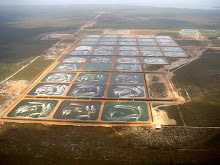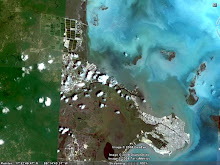Stay tuned for when we set the January meeting to begin to line up a more precise plan of action. In the meantime, you might be intersted to know that this little web site has begun to attract a little attention.
Without trying to attact any traffic at all, we've have hits from 11 states and 9 countries including the US, Canada, Mexico, Belize, Guatemala, Honduras, Brazil, China and Germany.
People are interested in the project.
January 15th, 2009: We have still not sought any publicity but our web site has now accumulated over 400 hits and in addition to the countries posted above, we have also been visited from the Philippenes, Thailand, Ecuador, Vietnam, Laos, Costa Rica, Spain, India and Brunei. Articles about our project have also been published in the newsletter of The Mangrove Action Project and Shrimp News.
February 15th, 2009: Add Malaysia, Singapore and the Cayman Islands. Nearing 1000 hits.
February 28th, 2009: Add South Africa, Taiwain, Czechosolvakia, Turkey and Sweden.
April 6th, 2009: Add Croatia, Saudia Arabia, Netherlands, Dubai.
http://www.mangroveactionproject.org/news/current_headlines/protecting-the-mesoamerican-reef-nutrient-abatement-for-shrimp-farm-waste-effluent/
http://www.shrimpnews.com/FreeNews.html
Saturday, December 27, 2008
Saturday, December 20, 2008
Defining the problem
 Here is some text from a grant that outlines some of the issues and problems we're hoping to solve.
Here is some text from a grant that outlines some of the issues and problems we're hoping to solve. Protecting the Mesoamerican Reef: Nutrient abatement for shrimp farm waste effluent
Belizean shrimp producers are world-wide leaders in sustainable shrimp aquaculture in developing nations, but specific problems remain within the industry.
Belizean shrimp producers are world-wide leaders in sustainable shrimp aquaculture in developing nations, but specific problems remain within the industry.
http://healthyreefs.org/Report_Card/Report_2008/Report_2008index.html
Affecting the global environment and the international shrimp ecocertification movement
A global effort by the FAO, UNEP, NACA, the World Bank and WWF is now underway to create ecocertification criteria, indicators, and standards for the culture of P. vannamei. Ecocertification uses global market forces to subsidize environmental protections by providing premium prices and markets to shrimp farmers that meet specific criteria for environmental sustainability. Ecocertification costs are paid by the producer and represent no cost to local governments.
Affecting the global environment and the international shrimp ecocertification movement
A global effort by the FAO, UNEP, NACA, the World Bank and WWF is now underway to create ecocertification criteria, indicators, and standards for the culture of P. vannamei. Ecocertification uses global market forces to subsidize environmental protections by providing premium prices and markets to shrimp farmers that meet specific criteria for environmental sustainability. Ecocertification costs are paid by the producer and represent no cost to local governments.
This project seeks to address specific environmental problems on Belizean shrimp farms by developing cost-effective means to improve effluent water quality. We will accomplish this goal by recycling nutrients from pond waste effluent back into feed for juvenile shrimp. The shrimp species P. vannamei is an omnivorous grazer and facultative filter feeder that readily consumes biofilms, bacteria and algae. Farms increase shrimp growth by adding commercial feeds to ponds. Waste nutrients from feeds exit ponds and enter effluent canals during rain events and pond drainings. By recycling waste nutrients from effluent canals back into production in the form of consumable biomass, project outputs will contribute to the economic sustainability of shrimp farms and improve the likelihood of technology adoption.
Substrates used for peiphyton growth will include Aqua Mats (a commercially produced substrate for shrimp farms), arrays of PVC pipes, and oyster culture strings. Local shrimp producers have donated the use of 30,000 Aqua Mats. Boats will be provided by the Southern Environmental Association, a Belizean environmental NGO. Urbana University High School Inventor’s Club in the US and Independence High School Environmental Biology class in Belize will monitor and participate in project implementation and design. Results will also be transmitted to the International Dialogue on Responsible Shrimp Aquaculture as an example of community-based monitoring, cooperation and mitigation of measureable environmental effects of shrimp farming. Project data will be suitable for peer review and publication.
Sunday, December 14, 2008
First Entry: The Inventor's Club Blog!
Welcome to your new work site!

If any one has comments or questions, don't be shy. We'll need a healthy exchange to make this work!

I've set up this blog to help the Inventor's Club follow and contribute to the progress of their 2009 project.
Eventually, we need to carefully organize the project goals, decide what exactly you want to do, carry out the project, review our results and draw conclusions about the efficacy of our invention.
The project this year will be to design a cost-effective device for reclaiming waste nutrient from shrimp aquaculture ponds effluent canals and then reintroduce that nutrient back into shrimp ponds in a form that is an effective, economical, and safe juvenile shrimp feed. Shrimp aquaculture is a multi-billion dollar industry world wide. The need for cost effective ways to clean waste effluents is a global one, with implications for ecosystems all over the world. Other industries, such as the septic waste treatment plants face similar challenges and could benefit from this work as well.
Tomorrow I'll submit a grant for some financial help. We'll find out if we get it during the third week of January. It would be nice to have a little money to focus specifically on this project, but even if we don't get the grant there's plenty we can do. I'll be traveling to Belize in February and can set up the project during that month and April. We'll merge this work with the project I'm already doing through the ecocertification project of the World Wildlife Fund.
Elizabeth indicated that the group was in favor of working with the environmental biology students at Independence High School. They're an energetic group and they have a good grasp of the situation in Belize and at the shrimp farms. They'll be great collaborators. Over time we may identify other partners as well.
Keep in mind this project is global in nature. Quite a few people might drop in on us over time. You might be surprised who shows up. Let's keep in mind that we are representing the school and ourselves as budding scientists. So let's have fun but keep the tone positive and respectful.
I'll lay out some ground rules as we go. Mr. Bergandine will have some conditions as well I'm sure.
If any one has comments or questions, don't be shy. We'll need a healthy exchange to make this work!
Subscribe to:
Posts (Atom)



